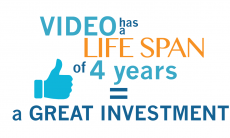I regularly am asked to look at new search engines, and because I have been working with search technology since the ’80s (yeah, I know I’m old), I am interested. I am a search geek and it’s fun. But, if you’re an Internet marketer, I think it’s harder and harder to care about any search engine other than Google. And it’s especially hard to care about new search engines. There are several reasons why this is so.
The first is simple market share. Over the past few years, Google has gone from holding a slight lead over Yahoo! to some analysts awarding it 70% or more of U.S. searches, with similar dominating positions in many other countries. In some countries it is virtually the only search engine—in Scandinavia, for example. So, marketers should care only about the search engines that reach their target markets.
But that’s too simplistic, because market dominance is never enough to win the technology game. Just ask AOL. And because I am so old, I’ve seen lots of dominating positions fall, so it would seem that smart marketers should be on the lookout for “the next Google,” right? I don’t think so.
Some argue that Google is so good at what it does that there’s no way for another search engine to come along that does it one better. But I don’t believe that.
Others argue that Google’s dominance of the ad market is so thorough—its profit share is far higher than its share of searches because it monetizes better than its rivals—that a superior search engine won’t succeed even if it comes along. There might be some truth in that, but I think there’s a simpler reason that new search engines are uninteresting to the average marketer.
It pains me to say this, as an old-time search guy, but I think that the market has moved on from search. Search has been the way for this generation of Web users to interact with the Internet, but the next generation will likely move on to something new and better. Oh, people will always search for things, but search is likely to become a feature of a larger environment, rather than the focus of a separate thing you do.
So, what is that larger context? I don’t know. Some speculate that it’s social networking. If you live your life inside Facebook, then you’ll do your searches from within Facebook. Others think it’s a virtual world, like Second Life. Maybe it’s something no one is talking about.
So, as interesting as new search engines are to me, I don’t think they have the ability to change the world the way they once did. They might show us new ways of thinking about finding information, and move the industry forward, or they might be acquired by Google or one of the other mainstream search engines and have an impact that way. But they are unlikely to topple Google, or even make much of a dent.
No, when Sergey and Larry talk late at night about the threats to Google, I bet they spend a lot more time talking about larger environmental contexts than they spend on new search engines. Which is why Microsoft buying Yahoo! probably wasn’t all that scary to Google. Microsoft buying Facebook is a lot scarier.
So, if you’re a marketer that wants to know what’s coming next in search, my guess is that wherever it comes from, it won’t be search. If Google is not the company we’re all talking about in five years, it won’t have been replaced a new top dog in search. It will be toppled by a company that does something more interesting than mere search.





